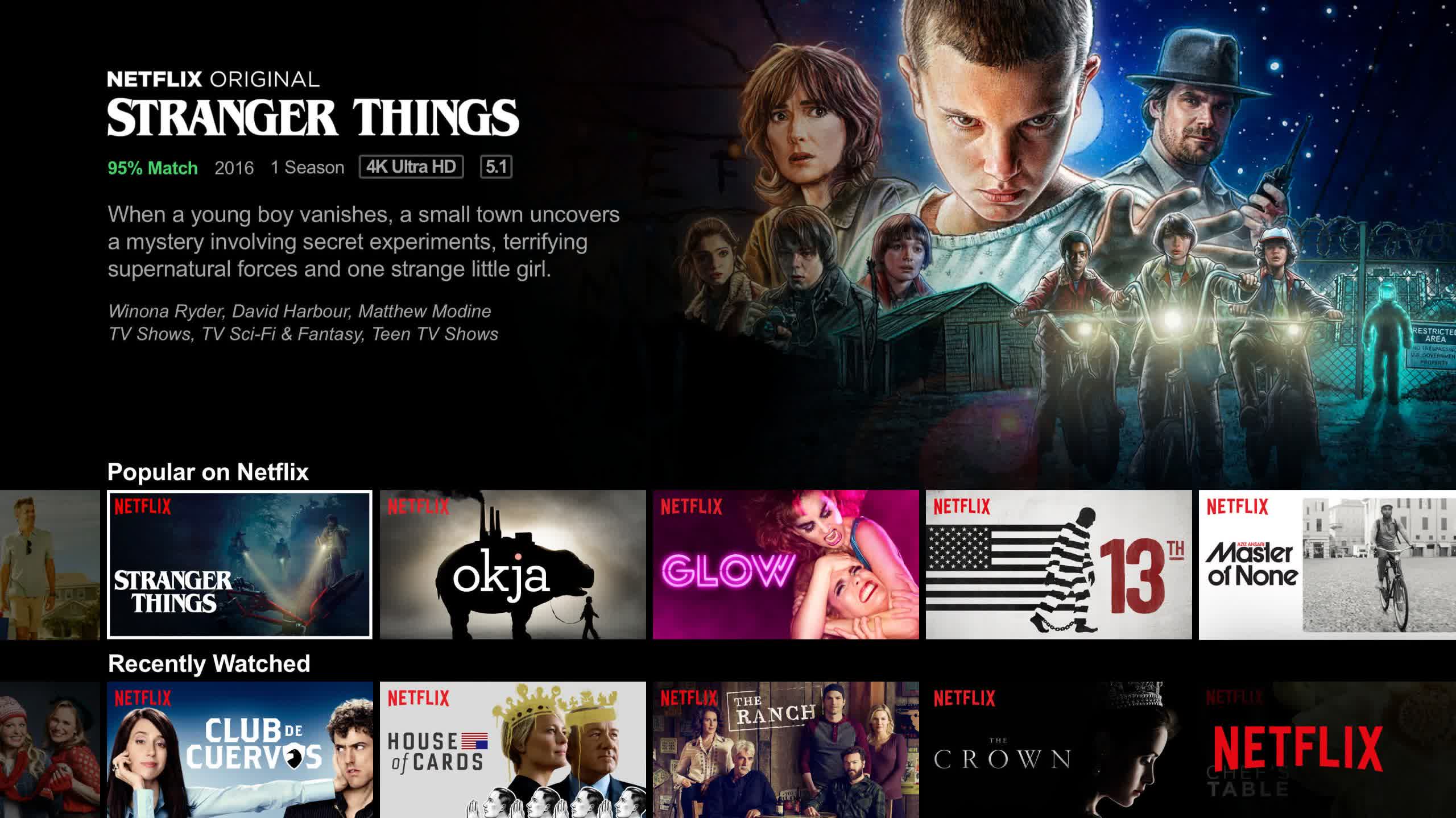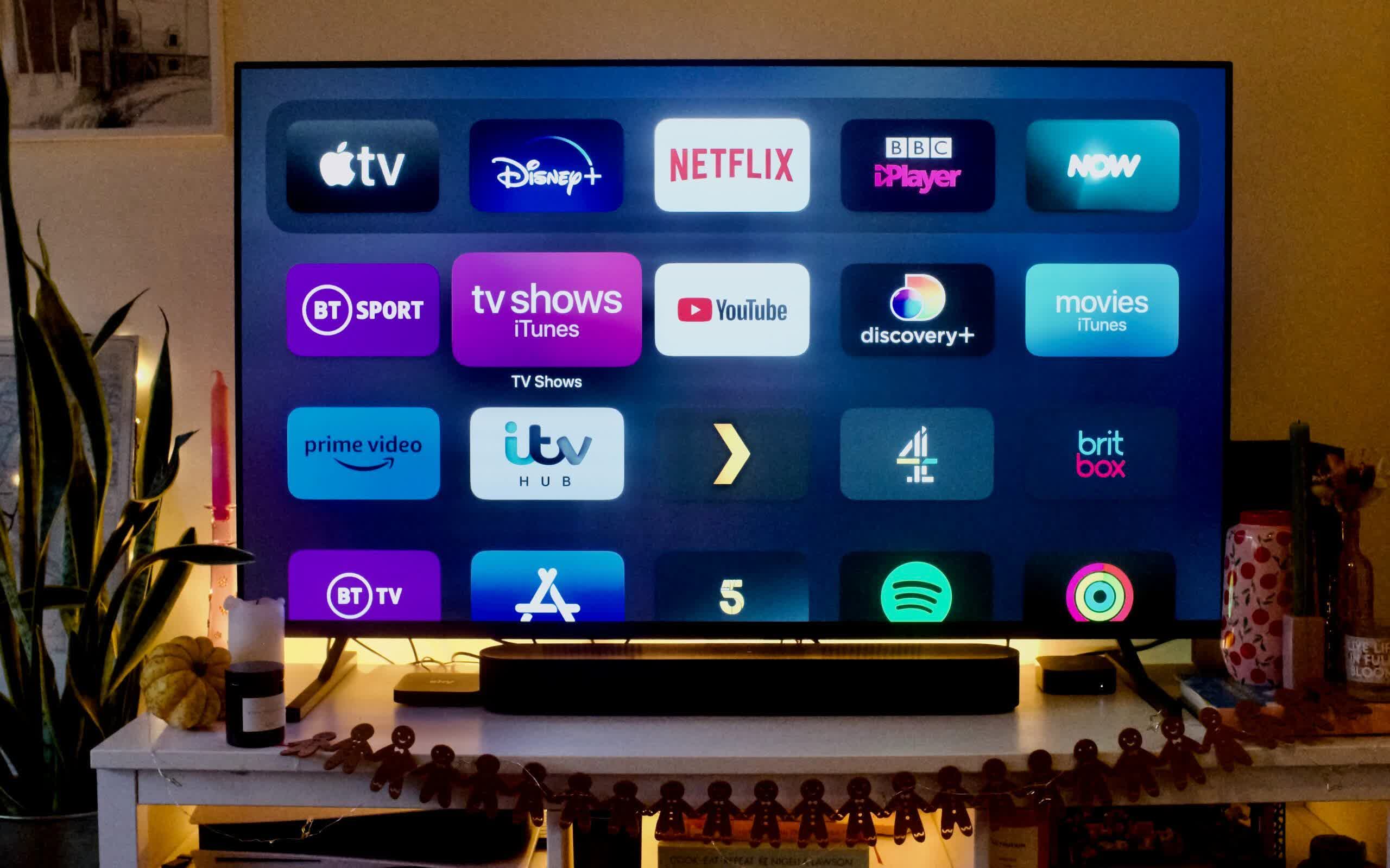In context: Believe it or not, Netflix is still the king of streaming video entertainment. It's easy to assume that with competition like Comcast and Disney, it would be floundering, especially after losing a lot of licensed content to its competitors. However, the former Big Cable boys are failing at the streaming game.
The Financial Times reports that some of the biggest entertainment companies will post more than $5 billion in losses from their streaming services for 2023. Disney, Comcast, and Paramount streaming divisions will all end up in the red for the year, and Warner Bros Discovery managed a small profit. However, investors are already clamoring about downsizing and spinning off parts of the business.
Paramount+ is arguably in the most trouble. The streaming service started as CBS All Access, which re-merged with Viacom in 2019 and was carried exclusively by Xfinity Flex (Comcast) in January 2020. By September 2020, Viacom rebranded the platform to Paramount+ with plans to make it a standalone streaming service and expand programming from on-demand CBS shows to more original series and "premium" content.
Within the last few weeks, controlling stakeholder Shari Redstone has initiated talks to sell the platform to Skydance. Talks are in the early stages, so details about the deal are scarce. Paramount CEO Bob Bakish reportedly spoke with Warner CEO David Zaslav regarding a merger, as well. However, inside sources warned that both deals are tentative and might not materialize.
In addition to the losses in streaming, the formerly "traditional" media conglomerates are struggling with a stingy advertising market, a significant dip in TV revenue, and a spike in production costs brought on by the recent 148-day writers strike.

LightShed Partners analyst Rich Greenfield said Paramount is in panic mode, desperately seeking a merger.
"TV advertising is falling far short, cord-cutting is continuing to accelerate, sports costs are going up, and the movie business is not performing," Greenfield said. "Everything is going wrong that can go wrong. The only thing [the companies] know how to do to survive is try to merge and cut costs."
Let's address the elephant in the room since Greenfield was so kind to bring it up. Big Cable's plans of taking over streaming are beginning to backfire as cord-cutters say, "No! We will not have it." People migrated to services like Netflix and Hulu to escape the perceived corporate greed of network TV and cable companies offering hundreds of channels "of value" in their basic packages while scattering the handful of quality content across increasingly higher-priced premium bundles.
It hit Big Cable and Hollywood hard in the pocketbook as people flocked online. So, it thought to copycat established streaming services and take back previously licensed content so they could collect all the revenue themselves. It appears now that those plans are falling apart, at least in part, due to cord-cutters stubbornly not buying into every streaming platform on the planet, particularly the newer ones backed by the corporate overlords that caused them to flee cable in the first place.
So the real winner in all of this hustle is Netflix, which pioneered streaming VOD (video on demand) services.
"For much of the past four years, the entertainment industry spent money like drunken sailors to fight the first salvos of the streaming wars," opined industry analyst Michael Nathanson in November. "Now, we are finally starting to feel the hangover and the weight of the unpaid bar bill. [For Netlix's competitors], the shakeout has begun."

Netflix has remained profitable for the most part over the last several years. Its most recent earnings report blew Wall Street analysts' predictions out of the water, adding over nine million new subscribers. The growth was the best the company has seen since early 2020, when pandemic lockdowns forced people to "Netflix and chill." Even recent "aggressive" price hikes have not harmed the platform.
Meanwhile, smaller upstarts are losing customers to hikes as they struggle to stay afloat. For those companies, it's merge or die. Warner was able to eke out a small profit for the year thanks to price hikes, canceling some shows, and signing licensing deals with, guess who? Netflix.
Unfortunately, it also saw over two million subscribers walk out the door in just the last two quarters. Many lost customers were inevitable. Still, Warner Discovery's ill-advised decision to not renew its licensing deal with Sony and effectively "stealing" hundreds of shows from thousands of PlayStation owners who had purchased Discovery content probably didn't help despite having since reversed its decision.
Even the entertainment behemoth Disney will not escape 2023 unscathed. It lost a whopping $1.6 billion from its Disney+ streaming platform in the first three quarters of the year. These losses come despite gaining eight million new subscribers in the same timeframe. It is now in the middle of restructuring, which has cost 7,000 employees their jobs. It now forecasts that the platform will become profitable in 2024.
According to Greenfield, growth by acquisition is not the answer. Companies like Warner, shooting to turn losses around by merging with other companies in the streaming sector, may suffer even more.
"The right answer should be, let's stop trying to be in the streaming business," he said. "The answer is, let's get smaller and focused and stop trying to be a huge company. Let's dramatically shrink."
Image credit: Trusted Reviews
